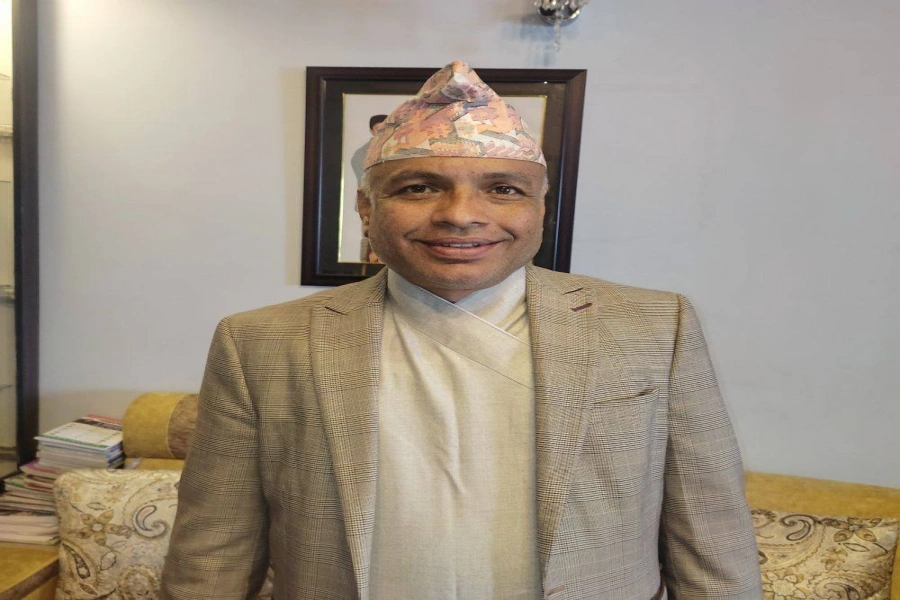Money laundering is moving of assets earned illegally (including through corruption) into legitimate economy through a series of financial transactions aimed at disguising the origins of the funds. It typically involves three major steps, namely the placement (where funds enter the legitimate financial system), the layering (where they are moved through the international financial system via a series of transactions) and the integration stage (where proceeds of crime are moved back into the legitimate economy once its origins have been disguised).
The UN estimates that more than US $1,000 billion was laundered last year, an equivalent of nearly two percent of the global gross domestic product. Despite the global attempts to crack down on money laundering in the last decade following terrorist attacks in the US, it has grown into a transnational malaise. International financial institutions are a key driver of laundering the proceeds of crime and corruption.

Despite banks tightening their regulations and oversight on such monies after the global financial crisis in 2008, the trend of exploiting global financial institutions for corrupt purposes has not decelerated. Banking secrecy, non-disclosure of ownership of corporations and other legal entities, lack of accounting transparency for multinational companies and insufficient provisions for effective exchange of information are loopholes within the international financial system which have led to a phenomenal rise in deposits in secrecy jurisdictions globally.
Investigation into corruption-related money laundering has frequently been stymied by secrecy laws in international financial institutions. Banking secrecy has been identified as the single biggest obstacle to international co-operation in tracking proceeds of corruption and crime. Global Financial Integrity (GFI), a US-based non-profit research institute, finds that secret deposits in offshore and secrecy jurisdictions across the world has reached US $10 trillion. The US, the UK, and the Cayman Islands top the list of secrecy jurisdictions each holding secret deposits of more than US $1.5 trillion from non-residents around the world.
Offshore deposits in secrecy jurisdictions have been growing at an annual rate of nine per¬cent. The GFI research covering a period from 2000 to 2008 also shows that illicit financial flows from developing countries alone reached US $6.5 trillion. Not all money deposited in offshore secrecy jurisdictions can be considered illicit in origin; but a considerable portion of it does emanate from commercial tax evasion, criminal activities, drugs trafficking, corruption, bribery, theft and many other illegal means.
The GFI study also shows that Nepal has lost US $9.1 billion from 1990 to 2008 in illicit financial flows. This is nearly eight times more than the official development assistance the country received during this period. This is indicative of Nepal facing an array of money laundering threats, including those resulting from corruption, illicit financial flows, tax evasion, narcotics trafficking, smuggling, fraud and human trafficking. Nepal’s fat informal sector and illegal cross border businesses have offered enormous opportunities for money laundering as well.
The Financial Action Task Force (FATF), an inter-governmental body responsible for setting standards on anti-money laundering, has been piling on pressure on Nepal to improve and tighten its Anti-Money Laundering (AML) regime. Endorsed by over 180 countries, the FATF recommendations are universally recognized standards for anti-money laundering and countering financing of terrorism and proliferation of arms. Last year, FATF had categorized Nepal among 20 countries as seriously deficient in combating money laundering and terrorist financing, alleging the country of posing a risk to the international financial system.
Nepal narrowly escaped being blacklisted during FATF’s plenary in Paris in February only due to a last-minute hectic diplomatic lobbying at home and abroad. But, even when the extended deadline is just a few weeks away, Nepal is yet to endorse three crucial bills on anti-money laundering—the Bill on Controlling Organized Crime, the Bill on Extradition and the Bill on Mutual Legal Assistance. The Maoist hardliners, led by Mohan Baidya who obstructed the parliament from endorsing these bills in February, must know that the bills, if endorsed, will improve Nepal’s financial system, create a positive investment environment and boost international trade by controlling the flow of illicit money.
Political transition has been Nepal’s repeated excuse for not complying with FATF’s recommendations. Nepal again sought leniency from FATF’s International Cooperation Review Group (ICRG) meeting in Delhi earlier this month citing the country’s critical political situation. But it remains to be seen what position FATF will take towards Nepal in its plenary scheduled for Rome in June. What ICRG recommends to FATF will ultimately shape its official position on Nepal during the meeting in Rome next month. But repeated failures to endorse the bills and yet again not fully complying with FATF’s 40+9 recommendations could make the body come down heavy on Nepal this time. To avoid international humiliation and minimize the adverse effect of being blacklisted, there is no other way except passing the bills at the earliest.
Blacklisting will hit the financial sector and our already troubled economy hard. Nepali banks may lose credibility and imports will be affected as foreign banks might refuse to accept letters of credits. Seeking foreign aid and investment would also not be easy as international donors might impose stringent conditions for aid to a blacklisted country. Movement of Nepali nationals especially the migrant workers and the remittances will be under scrutiny. Foreign banks may refuse to open accounts of Nepali diplomatic missions abroad. Only a couple of months ago, the Chase Bank in New York had closed the bank accounts of Nepali diplomatic mission on the request of FATF.
Both internally and externally, there might be more such closures, sanctions and isolation in store for Nepal. Thus, it is impor¬tant that the government, political parties and their dissident factions comprehend the risks and take measures such as endorsing three pending bills to improve its AML regime. Parliamentary endorsement of the bills will allow Nepal to save face for now. But our fight against money laundering must not cease here. There are some important but urgent institutional and legal reforms to be undertaken.
To check laundering, the government has set up Money Laundering Investigation Department (MLID) and Financial Information Unit (FIU). Though the MLID enjoys extensive jurisdiction covering civil servants, constitutional bodies, judiciary, army, non-government organization and private sector falling within its ambit, its performance has not been up to the mark. This is due to lack of investigative capability, institutional independence, prosecutorial strength, adequate resources and competent staff. The MLID has been placed within the Ministry of Finance, putting its institutional autonomy and independence in question. The agency without competent personnel and autonomy is no better than a scarecrow. Thus, there should be serious consideration to give statutory or constitutional status to this department. Also the MLID needs to have a pool of technical and judicial experts with knowledge of electronic transfers, banking and financial system, which is a must for curbing the crimes of money laundering effectively.
Evolution of global AML regime in the last two decades has not only put pressures on tightening banking regulations globally but also offered new opportunities for countries like Nepal to de¬ter and detect corruption and to recover illicit assets stashed abroad. But, in order to cash in on these opportunities, Nepal needs to improve its AML system by harmonizing domestic laws on predicate offences and improving access to information on beneficiary ownership, and encouraging collaboration between MLID, FIU, Special Court and anti-graft agencies as a part of its improved AML regime to curb fiscal crimes and the flow of dirty money in and out of Nepal.
pbhattarai2001@gmail.com
The costly AI bet: Why a $400bn chip boom may be wearing thin





































